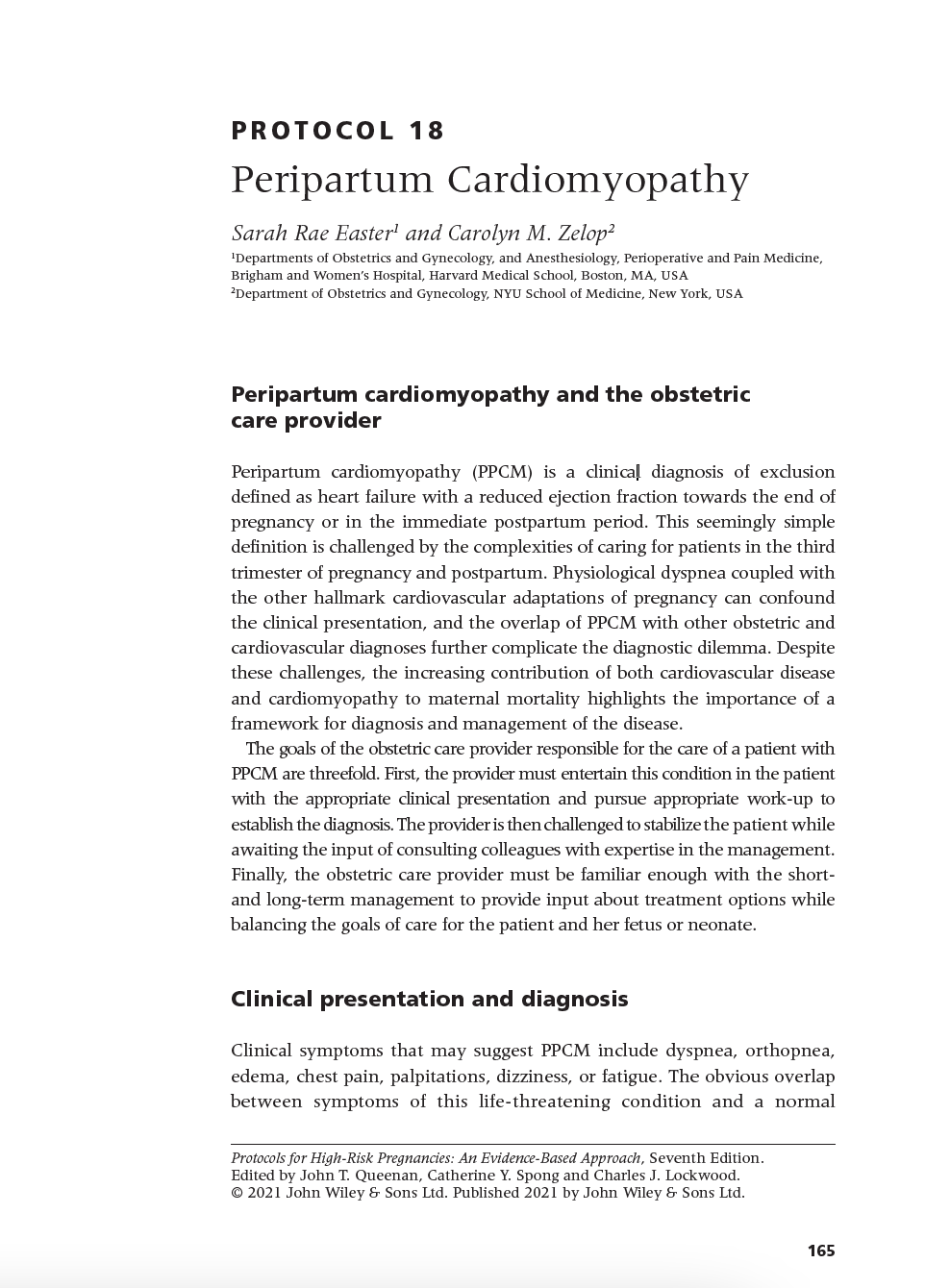
- Vol 66 No 1
- Volume Vol 66
- Issue No 1
Protocols for High-Risk Pregnancies, 7th Edition: Protocol 18 - Peripartum Cardiomyopathy
Protocol 18: Peripartum Cardiomyopathy
Peripartum cardiomyopathy and the obstetric care provider
Peripartum cardiomyopathy (PPCM) is a clinical diagnosis of exclusion defined as heart failure with a reduced ejection fraction towards the end of pregnancy or in the immediate postpartum period. This seemingly simple definition is challenged by the complexities of caring for patients in the third trimester of pregnancy and postpartum. Physiological dyspnea coupled with the other hallmark cardiovascular adaptations of pregnancy can confound the clinical presentation, and the overlap of PPCM with other obstetric and cardiovascular diagnoses further complicate the diagnostic dilemma. Despite these challenges, the increasing contribution of both cardiovascular disease and cardiomyopathy to maternal mortality highlights the importance of a framework for diagnosis and management of the disease.
For an in-depth review, read a chapter summary
Continue reading this chapter via PDF below:
Articles in this issue
about 5 years ago
Syphilis in pregnancyabout 5 years ago
Laparoscopic abdominal cerclageabout 5 years ago
Effectiveness of self-collected HPV screening testsabout 5 years ago
Navigating the Annual Pregnancy Meetingabout 5 years ago
Cervical Cancer Awareness Monthabout 5 years ago
Vulvar amyloidosisabout 5 years ago
A look back at our top casesabout 5 years ago
Dental dilemmas in pregnancyabout 5 years ago
Readers React: The state of gynecologic robotic surgeryNewsletter
Get the latest clinical updates, case studies, and expert commentary in obstetric and gynecologic care. Sign up now to stay informed.










